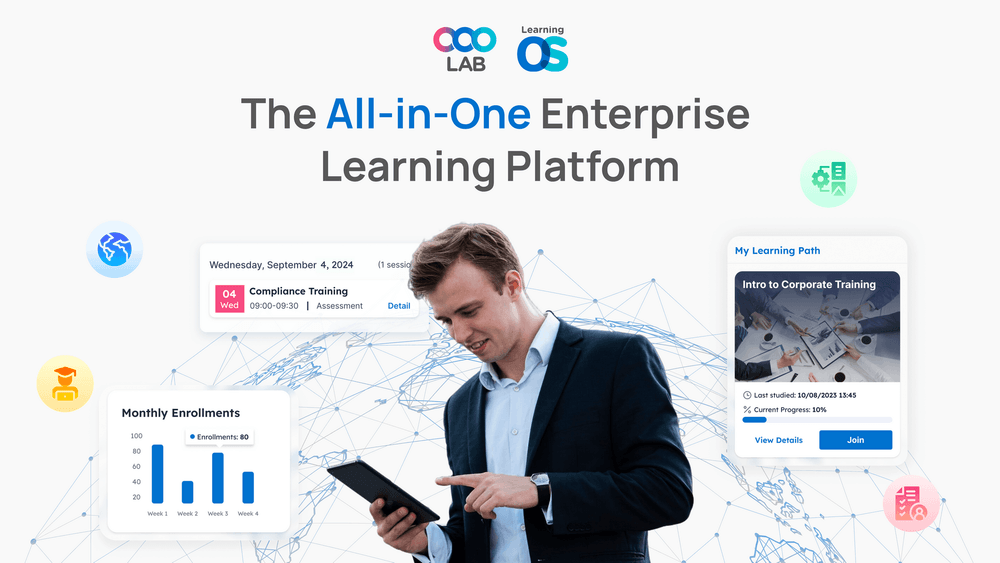

In today’s fast-evolving workplace, organizations are rethinking how they assess talent. While IQ (Intelligence Quotient) has long been a standard measure of cognitive ability, skill quotient—a metric focused on practical, job-specific competencies—is gaining prominence. Unlike IQ, which measures general intelligence, skill quotient evaluates an individual’s ability to apply knowledge effectively in real-world tasks. As businesses prioritize performance, adaptability, and measurable outcomes, skill quotient is proving to be a more relevant indicator of success.
This blog explores why skill quotient surpasses IQ in modern workforce development, supported by data-driven insights. We will examine key differences, practical applications, and strategies to enhance skill quotient for organizational growth.

IQ measures cognitive abilities like problem-solving, reasoning, and memory, often through standardized tests. It provides a broad assessment of intellectual potential but doesn’t account for practical application or context-specific skills.
Skill quotient, conversely, focuses on measurable competencies, such as technical expertise, communication, or leadership, tailored to specific roles or industries.
A Mordor Intelligence study found that 70% of employers prioritize skills over cognitive metrics when hiring, as skills directly correlate with job performance. Skill quotient aligns with this shift, offering a dynamic way to assess and develop talent skill quotient.
>>> Read more: Skill Quotient Training Tool
>>> Read more: Why Is Skill Quotient Important for Employees?
The modern workplace demands adaptability, collaboration, and practical expertise, areas where skill quotient excels. Key reasons include:
Relevance to Roles: Skill quotient measures job-specific abilities, ensuring employees can perform tasks effectively.
Adaptability: Skills can be developed through training, unlike IQ, which is largely static.
Measurable Impact: Skill quotient ties directly to performance outcomes, like sales or project success.
Diversity and Inclusion: Skills-based assessments reduce bias compared to IQ tests, which may favor certain demographics.
A Gartner report notes that organizations focusing on skills-based metrics improve performance by 25%. Skill quotient offers a practical, inclusive approach to talent management skill quotient.
Book Free Demo with us. Bring your Training and Learning to a new height with LearningOS.

>>> Read more: How To Measure Skill Quotient In Employees?
>>> Read more: Mastering Skill Quotient Measurement: Key Metrics and Strategies for Accurate Assessment
Understanding the distinctions between skill quotient and IQ is critical for leveraging their strengths. Below are the primary differences and their implications.
IQ tests measure general cognitive abilities, such as logical reasoning or pattern recognition, applicable across contexts. Skill quotient evaluates specific competencies, like coding, negotiation, or customer service, tailored to job requirements. For example, a high IQ might indicate strong analytical skills, but skill quotient ensures a rep can close deals effectively.
This role-specific focus makes skill quotient more actionable for workplace success skill quotient.
IQ is relatively fixed, with limited potential for improvement after early adulthood. Skill quotient, however, can be enhanced through training, practice, and feedback. For instance, a manager can improve leadership skills via targeted coaching, directly impacting team performance.
A LinkedIn Learning report found that 68% of employees value opportunities to develop skills over static qualifications. Skill quotient supports continuous growth, aligning with modern learning cultures skill quotient.
IQ predicts potential but doesn’t guarantee performance in specific tasks. Skill quotient measures applied knowledge, such as a developer’s ability to write clean code or a marketer’s campaign execution. This focus on real-world outcomes makes skill quotient more relevant for employers.
Skills-based hiring ensures employees contribute immediately, reducing onboarding time and costs skill quotient.
IQ tests can be biased toward certain educational or cultural backgrounds, limiting their fairness. Skill quotient assessments, designed around job-relevant tasks, promote inclusivity by focusing on demonstrated abilities. For example, a skills test for customer service evaluates communication, not abstract reasoning.
This inclusivity aligns with diversity goals, making skill quotient a fairer metric skill quotient.
Skill quotient directly ties to organizational objectives, such as increasing revenue or improving customer satisfaction. IQ, while correlated with problem-solving, lacks this direct link. For instance, a high skill quotient in sales techniques can boost close rates, directly impacting revenue.
Aligning assessments with business outcomes ensures skill quotient drives measurable results skill quotient.
Rapid technological and market shifts require employees to adapt quickly. Skill quotient supports upskilling in areas like AI tools or digital marketing, while IQ remains static. An enterprise LMS can deliver targeted training to enhance skill quotient, ensuring employees stay relevant skill quotient.
This adaptability is critical in dynamic industries like tech or healthcare.
Investing in skill quotient development yields clear returns, such as improved productivity or reduced errors. IQ development, however, is less tangible and harder to quantify. For example, training on project management skills can shorten delivery timelines, directly impacting ROI.
Skills-focused training ensures investments translate into performance gains skill quotient.
>>> Read more: Social Quotient Vs Skill Quotient: A Comprehensive Analysis
>>> Read more: Skill Quotient Assessment Tools: Unlocking Employee Potential
Organizations can boost skill quotient through targeted strategies, leveraging tools like an enterprise LMS for scalable learning. Below are key approaches to develop and measure skill quotient.
Use role-specific assessments to measure skill quotient, such as coding tests for developers or role-playing for sales reps. An enterprise LMS can host these assessments, providing data on performance and gaps enterprise LMS.
Assessments ensure skill quotient aligns with job requirements, improving hiring and development skill quotient.
Personalized learning paths address individual skill gaps. An enterprise LMS uses AI to recommend tailored modules, such as leadership training for managers or technical skills for engineers. This mirrors the adaptability of skill quotient over static IQ enterprise LMS.
Personalized training boosts engagement and skill mastery skill quotient.
Skill quotient thrives on ongoing development. An enterprise LMS supports microlearning—short, focused modules on topics like negotiation or data analysis—ensuring employees stay current. Regular training updates keep skill quotient aligned with industry trends enterprise LMS.
Continuous learning drives long-term growth and adaptability skill quotient.
Analytics track skill quotient progress, measuring improvements in performance metrics like sales quotas or project completion rates. An enterprise LMS provides dashboards to monitor training outcomes, linking skills to business impact enterprise LMS.
Data ensures skill quotient development is measurable and effective skill quotient.
In the modern workplace, skill quotient surpasses IQ as a measure of talent, offering a practical, adaptable, and inclusive approach to workforce development. By focusing on job-specific competencies, organizations can drive performance, reduce bias, and achieve measurable ROI. Tools like an enterprise LMS enhance skill quotient development, ensuring employees are equipped for success.
Invest in skill quotient today to transform your talent strategy. With skills at the forefront, your organization will thrive in 2026 and beyond.
At OOOLAB (pronounced 'uːlæb'), our mission is to make complex learning operations simple. We aim to positively impact the lives of over 1,000,000 learners and educators by the end of 2026.
OOOLAB's LearningOS provides educational institutions and corporate enterprises with an all-in-one solution to create and deliver engaging learning experiences.
We meet organizations' needs or support your growth. We provide undivided attention. We provide:
1. Dedicated success manager: We offer direct communication with a real human who'll discuss your enterprises unique learning operations and goals.
2. Personalized setup: Our team will help you transition to LearningOS on your schedule, one step at a time.
3. Around the clock support: Get help from us any time, and in any time zone.
We have recently launched a new AI training tool, Skill Quotient OS, designed to elevate hybrid training to new heights. It offers role-play exercises with scenarios and assessments. This tool can apply in sales training, corporate development and customer support training in any industry.
Reach out to us at: LinkedIn, Facebook, Instagram, Tiktok, X
1. What are the main benefits of LearningOS
Our platform is easy to use and automates all aspects of your learning operations. It efficiently manages complex tasks, allowing you to concentrate on delivering exceptional learning experiences.
2. What main features does LearningOS offer?
Our all-in-one software solution combines a Content Management System, a Learning Management System, content authoring tools, and a mobile friendly Learner Portal.
3. Can your platform be used for corporate enterprises?
Absolutely! LearningOS is an Enterprise LMS is a great fit for corporate learning. In fact, we have clients with up to 700,000 employees using LearningOS! Upskill your workforce by creating and assigning interactive eLearning content while effortlessly tracking employee progress.
4. Who currently uses your platform?
Our platform is currently used by over 120,000+ learners, parents, and employees across 21 countries worldwide!
5. What types of content options are available on your platform?
We offer ready-to-go curriculums for various educational purposes or our expert design team can build a custom course for you. We can also upload your existing learning materials and enhance them digitally.
6. What is unique about LearningOS?
Our platform, designed by educators for educators, provides you with all the tools you need to scale. Build and promote your own hybrid and blended learning courses and save money on licensing fees by owning your own proprietary content.
7. How can I get started?
Schedule a meeting with our experts and we’ll talk about how our platform can address your unique challenges and help to grow your business.